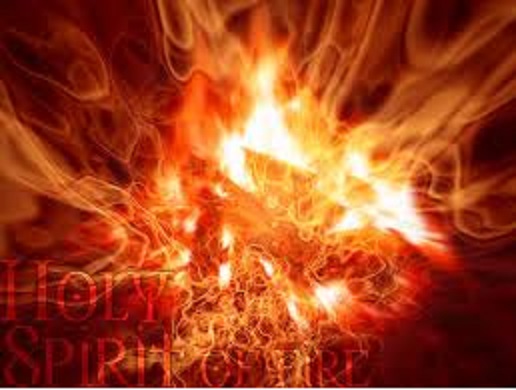Do you really want the Lord to send the Fire? Do you fully understand the cost behind what you are asking for? He will send the fire but it may not be what you had in mind.
The Bible says that for everything there is a season and it certainly seems that all of life progresses in a seasonal pattern. Our Christian walk is no different. Early on we progress through seasons of understanding, in which we realize that God is real, that we are forgiven, that God is good, that we’ve been placed on this earth for a purpose, that Jesus paid it all… If we continue down that path we eventually come into seasons of transformation.
These revelations are not normally as easy to receive and this process digs much deeper into our being. Gods stated purpose to transform us into the image of Christ takes on profound new dimensions. Like He did with the rich young ruler, Jesus seems to identify the very thing that we don’t think that we can give. These seasons reveal a lot about the level of commitment and trust that we have in our relationship with the Lord.
As I have been walking through these seasons, I’ve come to see that the only thing that hinders the move of God in my life is me; sure there is an enemy and he’s always got something to say, but he can only work with what I give him. These revelations inevitably lead me to cry out for God to change my heart, because as much as I want to change, I can’t do it without Him. It seems that the prerequisite for my transformation to His character traits is the surrender of mine.
One of Gods sharpest tools within our transformation process is other people. Indeed God is defined by His love of people and our relationship to them often becomes the measuring stick of our progress. Our natural selfishness hinders us in this area, but even more profound is our fear of getting hurt. Most of us know that opening ourselves and our lives up to others can lead to heartbreak and there is a very natural tendency to try to protect ourselves from that; but I’ve come to believe that God intends for our hearts to be broken.
It seems that the only way to avoid heart break is to avoid truly loving. We do this by keeping our relationships very superficial and non-committal; but God won’t let us remain comfortable at that distance. He sent His only Son, knowing that He would be rejected, abused and ultimately crucified; He’s not hesitant to send us there as well. He doesn’t expect us to trust them with our hearts, He expects us to trust Him.
The scripture points us to this, as the beatitudes include blessings for those who mourn, who are poor in spirit and who are persecuted for righteousness sake; David tells us that the sacrifices of God are a broken and contrite heart and Jesus is described as a man of sorrows, acquainted with grief. We may want to try to interpret these things away, but they all point to the fact that if we love as He loves, our hearts will be broken. Our attempts to avoid this heart break will inevitably hinder our transformation into His image.
As we endeavor to open ourselves to the various aspects of the transformation process, we quickly come to the understanding that we are powerless in this struggle without the aid of the Holy Spirit. While this is a good and necessary revelation, our pursuit of this power can easily get us off track again. We can come to see the power of the Holy Spirit as a way to avoid this process instead of as the way to go through it.
I’m reminded of the story of Elijah and the widow in Sidon; in this story we see that there is a great famine in the land and God sends His Prophet to a poor widow for food. She is down to her last portion of oil and flour, intending to make one final meal to share with her son, when Elijah comes to her. He tells her to make him a meal first and promises that her oil and flour will not run out until the famine ends. She is obedient and indeed her supply of flour and oil is supernaturally maintained. I believe that many of us want to identify with Elijah in this story, but I believe that before we can play the role of Elijah, we must first play the role of the widow. Indeed Elijah himself had just spent years in the desert, being obedient to Gods instructions and relying on the ravens to bring him food. If Jesus himself had to walk through the steps of faithful and humbling obedience, these steps must also be essential for us.
As we pray for the power of the Holy Spirit, we often cry out, “send the fire”, which speaks of the holy fire of God. John the Baptist spoke of this when he baptized with water, telling all who would hear him that the One who would follow would baptize with the Holy Spirit and with fire. This fire certainly represents the power of God, but more specifically it speaks of purification.
On the day of Pentecost, it was with tongues of fire that the believers received the power from on high. While it is certainly not wrong to pray for Him to send the fire, I wonder if we really comprehend what we’re asking for. Do we think that the fire is coming to burn up our enemies and our troubles; do we believe that the fire is just going to burn up the stuff we don’t want and not touch the rest? The fire of God is a consuming fire and it doesn’t come for them, it comes for us. It comes to burn up our pride and our dignity; our comfort and our reputation; and most assuredly it comes for our stuff (i.e. all the stuff we’ve crammed our lives with, that is of no eternal value). The fire burns up the chaff, which is everything that is unfruitful in our lives.
We need that, but is that what we really want? I think that we might be surprised to find out that many of the things that we’ve considered a blessing from God would actually be counted as a hindrance by Him. Will we be praising Him when the fire comes for our big screened TV or our designer clothes or our position in the community or any other thing that distracts us from the things He’s called us to? It seems that we want to be close enough to the fire to stay warm, but that as soon as the heat gets a little intense, we tend to back up.
In looking at Pentecost, we tend to focus on the great power and authority that the Apostles emerged from the Upper Room with, but ignore the fact that this sealed them forever as outcasts, in a culture that was openly hostile to just about every aspect of their message. While they accomplished incredible things for the kingdom of God, their lives here on earth didn’t become easier, their enemies didn’t go away and none of their endings would met the worlds’ criteria for “happily ever after”. Is this really what we’re praying for?
The fruit of a season of transformation is that you emerge changed. If we simply wish to warm ourselves with the fire of God, we may accumulate some exhilarating experiences, but we’ll never truly be free or fulfill Gods’ purposes for us. Our flesh may enjoy that, but our spirit will remain unfulfilled.
God means to align our hearts with His, so that His priorities will be our priorities. While we may be disturbed by what’s going on in the world, He is appalled; and while we may be burdened, He is heartbroken. We need the fire to come and burn away all the weeds and debris that have choked off our growth. If we truly want to be transformed, we cannot keep running away from every fiery trial and rebuke every struggle.
It was for the eternal glory that Jesus “endured” the cross, “despising” its’ shame. Even though He despised it, He endured the process because He wanted the Fathers will to be done on earth as it is in heaven. This must become our motivation too. If our motivation is simply to be comfortable or prosperous or powerful or glorified… nothing but ashes will be produced by the fire.
When the fire comes, it’s going to get very hot and it’s going to burn some things that we think that we need. It won’t be pleasing to our flesh, but it will be energizing to our spirits. It will burn away the things that have bound us to this world and we will be truly free to glorify our Father in heaven. It will produce a Bride who will be glorious to her Bridegroom. So I pray, “send the fire Lord”. “Send the fire!”
Brian Corbin










































[…] Send the Fire! Do we Understand what we are asking for? […]